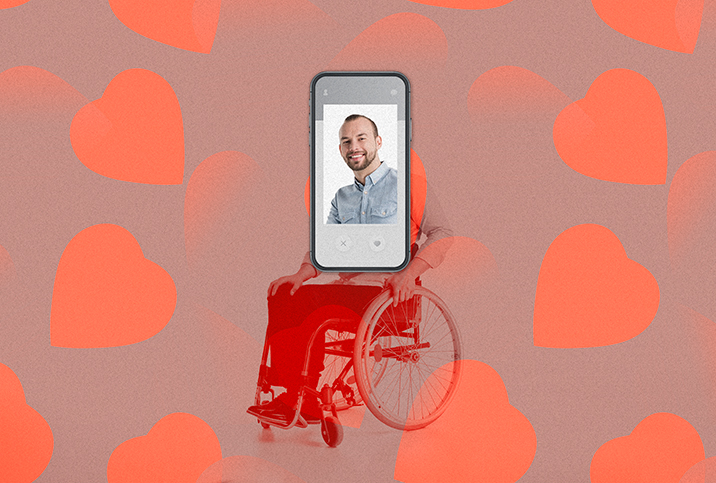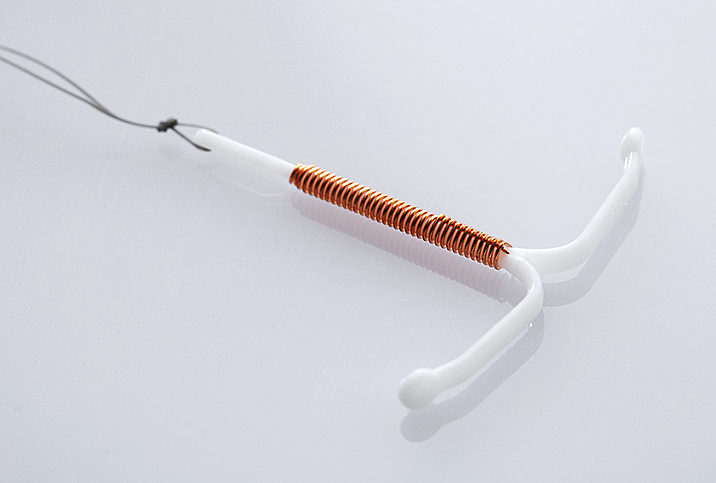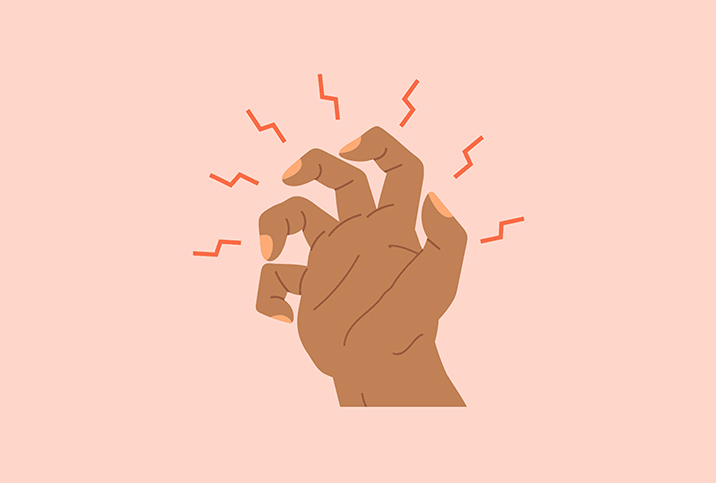How Do You Date With Joint Hypermobility Syndrome?

I have joint hypermobility syndrome (JHS), a condition that causes some or all of a person’s joints to have an unusually large range of motion. Sometimes my joints feel as dislocated as my dating history.
Naturally, making room for dating is more difficult when your joints regularly subluxate—the incomplete or partial dislocation of a joint—or dislocate. Sometimes dating feels like an unnecessary frivolity. But why shouldn’t dating be a priority?
No one should deny themselves romantic fulfillment or sexual satisfaction because their body is a little inconvenient sometimes.
What is joint hypermobility syndrome?
JHS is a fairly common condition. Figures on the prevalence of the condition are varied, however, because patients with the condition are often misdiagnosed or not recognized.
It also has degrees of severity. Some people will experience no symptoms at all; others may develop varying degrees of symptoms that impact daily function.
"Some people with JHS may also experience fatigue, sleep disturbances and gastrointestinal issues, which can further complicate the condition and make dating or maintaining a relationship seem like a chore," said Paul Allen, a chiropractor and pain management expert at The Fibro Guy in the United Kingdom. "It ain't exactly a unique selling point telling a date that you're prone to tiredness and, oh yeah, my joints pop out at random times, too."
Symptoms of joint hypermobility syndrome, according to Cleveland Clinic, may include:
- Dislocations
- Subluxations of joints
- Recurrent soft tissue injuries
- Chronic joint pain and stiffness
- Back and neck pain
- Tiredness and fatigue
- Clumsiness or poor balance
Diagnosing JHS is done using a special score to measure the flexibility of your joints, according to Hana Patel, M.B.B.S, a general practitioner and mental health coach in London.
"The Beighton Scoring System measures joint hypermobility on a nine-point scale, and the higher your score, the more flexible your joints are,” Patel said. "However, your doctor may also carry out further investigations and tests, such as blood tests and X-rays, to exclude other forms of joint problems."
There may be a family history of hypermobile joints. It tends to run in families and is typically diagnosed most often in children and young people to a far lesser extent.
How does JHS affect your daily life?
I was diagnosed in my first year of college when a rheumatologist identified the culprit behind my clicking and subluxing joints. For years, I had pushed my joints and muscles beyond their capabilities to live a normal life before the diagnosis provided some clarity.
The condition is not severe for me, but it does have an impact on my daily life, particularly with chronic fatigue and joint pain. JHS impacted my self-esteem and isolated me from my healthy peers, so I suppressed the effects of the condition to cope.
"When people experience discomfort, they try to get away from it, a course of action rooted in survival," said Natalie Fraize, L.M.H.C., L.P.C., a licensed mental health counselor in Buffalo, New York.
"As a result, people with chronic illness and pain conditions are avoidant of noticing sensations in their bodies. Unfortunately, this isn't as self-protective in the long-term as it feels in the short-term," Fraize said.
Trying to ignore the impact of JHS made it worse. I decimated my energy levels by overextending my body every day, often resulting in canceled plans and extended stays in bed. It was not a healthy lifestyle.
Physical activity can help reduce pain, improve muscle strength and boost a host of other benefits, according to the Hypermobility Joints Association. But high-impact exercise and contact sports aren't the best idea. Listening to your body is important but difficult to do when you pretend you feel fine.
"Dealing with chronic health conditions is draining, and unpredictable responsibilities of life may be challenging enough that taking on the stressor of dating feels overwhelming," Fraize said. "Dating is a process with the ultimate goal of connection and it is easy for anyone to lose motivation when it doesn't go as hoped right away. But remember that's normal, and it's part of the process of finding the connection you're looking for."
How do you meet people and date with JHS?
"The main question about whether to date is: Do you want a connection?" Fraize asked. "If you want to connect, then you're ready to date. We gain our confidence from pushing ourselves to do things and following through, from interactions with other people that give us those warm feelings in our chest."
When learning how to deal with being chronically ill, dating crashed to the bottom of my priority list, until I made it one. But first, I had to get over the internalized belief that chronic illnesses made me undateable.
My mistrust of the dating scene was fed by a couple of demoralizing incidents—namely when a sexual partner commented on my 'different' body midway through sex—but plenty of folks do not have the emotional maturity of a child.
Those that do not treat you with respect are not worth dating; our worth is not dictated by someone's misunderstanding of the condition.
Take it slow. Figure out your boundaries and physical limits so you can make your dates accessible.
"Another common issue people with joint hypermobility and other chronic health conditions face is having to cancel plans sometimes more frequently than other people and worrying about the impact it will have on relationships," Fraize said. "The key to handling this is awareness on both ends, communication about feelings and concerns as they arise, asking lots of questions, and being adaptable."
How can you manage the sexual impact of JHS?
"People with this condition often exhibit an ability to move their joints beyond what is considered the normal range," Allen said. "Whilst this may sound like a perk for 'extracurricular bedroom activities,' it can also be quite detrimental if not well managed."
Having to stop midway through a sexual encounter because your hip has ground its way partially out of your socket is less than ideal, but it happens to me fairly regularly. It is a frustrating, yet conquerable, scenario.
"No one wants a bedroom mishap where a dislocation or hyperextension can kill the vibe," Allen noted.
Sex is objectively funny, and injecting some humor into the situation eases the awkwardness. I take a moment to adjust, find a new position and continue without any unnecessary pity parties.
To find positions that work for you, ensure you feeling well beforehand, Patel advised. Also, don't have any joint injuries that may get worse. If you need to, consider taking analgesia or having a routine for after sex. That can manage joint pains.
"Strengthening the pelvic floor can also be helpful," Patel said. "And knowing why you may be in pain may help manage symptoms when you do have intercourse."
How do you balance communication with self-preservation?
It took a long time before I felt comfortable sharing my condition with prospective dates. The fear of being judged made silence an attractive option for self-preservation.
This caused more harm than good because I was unable to communicate my need for certain accommodations to a partner, particularly around sex.
There is no need to share everything immediately or make your first few dates purely about the condition, just do not let it become an unspoken shadow looming over your future.
"For those dating with JHS, I would advise keeping it playful," Allen said. "Use open communication and honesty with potential partners. Share your experiences, challenges and any necessary accommodations so your date understands the condition.
"It is essential to ensure that you feel comfortable and secure in any relationship or dating scenario."
The bottom line
Self-awareness plays the most important role in maintaining effective communication as you hit the dating scene. You know your body better than anyone else. If something doesn't feel right, speak up, and figure out an alternative.
Talk with your doctor if you have questions about managing your chronic illness.


















